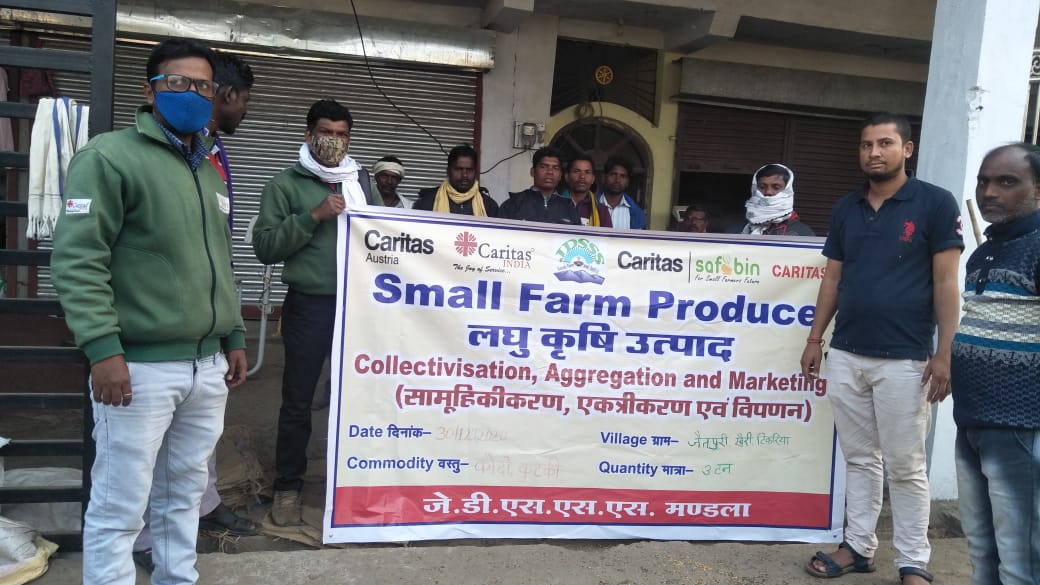
Mandla district of Madhya Pradesh is famous for its rich natural resources and yet it is one of the most backward areas in the State. Low food productivity, high dependence on wages, increased sale of fuelwood and high incidences of migration are some of the critical issues in the region.
Since Cereals like paddy and millet are the lifeline of smallholders of the region, the dependence on the monsoon rain for agriculture production has always been risky and increase their risk manifolds when it tied with climate change and weather uncertainty. In addition to this, the unfolding COVID-19 crisis has also exposed and intensified the risks in the entire food system.
“Majority of the smallholders like me depends mostly on the monsoon rain but this year the risk was, even more, higher due to covid-19 pandemic, putting many new challenges before us to ensure food security,” says Subhadra Bai Sahu, Cluster Level Facilitators (CLF) of Ghonta cluster, Mandla.
The CLFs was promoted by the SAFBIN at the cluster level to ease the process of collectivisation, aggregation, packing and marketing for potential small farm produces. They are the first level facilitators to plan, guide and manage the backward and forward linkages between farmers and buyers.
The SAFBIN form of smallholder led value chain works under three major levels including CLF, FPO and Marketing. The role of cluster-level facilitator (CLF) being one of the most crucial positions to help the smallholder in linking potential small farm produces to the larger markets and traders at a competitive price.
Clusters were developed to take the maximum leverage for the farmers. Within a cluster co-operation, smallholders can access to specific inputs and information related to their farm. It is a recognised way to enhance productivity through innovative models and interventions by providing basic technical support. Clusters can allow small farm collectives to combine advantages with various benefits. Hence, SAFBIN demarcated the entire program areas into seven clusters and placed equal numbers of cluster-level facilitators to ensure quality services to enhance small farm productions and linking potential commodities to the larger market.
Recently, 42 smallholder farmers collectively aggregated 6MT of indigenous variety millet (Kodo: 3MT and Kutki: 3MT) and sold at the trader’s market in coordination with cluster-level facilitators @ Rs. 1,800/- and @Rs. 2,900/- per quintals respectively and a sum of Rs. 1,41,000/- been received collectively.
“Often, we had to depend on others to take ours produces to local market or sale to the person who comes to buy at the village with any rate suited to the situation. But we could see the benefit received by collecting our surplus grains and selling on a competitive rate after negotiation through the CLF,” shares Mamta Bai, one of the SHFC members of Jaitpuri village.
Smallholder Adaptive Farming and Biodiversity Network (SAFBIN) is committed to strengthening smallholders’ capacity through eco-friendly adaptive best practices to enhance farm production and productivity, ensuring access to and usage of quality farm inputs and services, facilitating access to fair, remunerative and competitive markets including linking smallholders to better marketing opportunities.